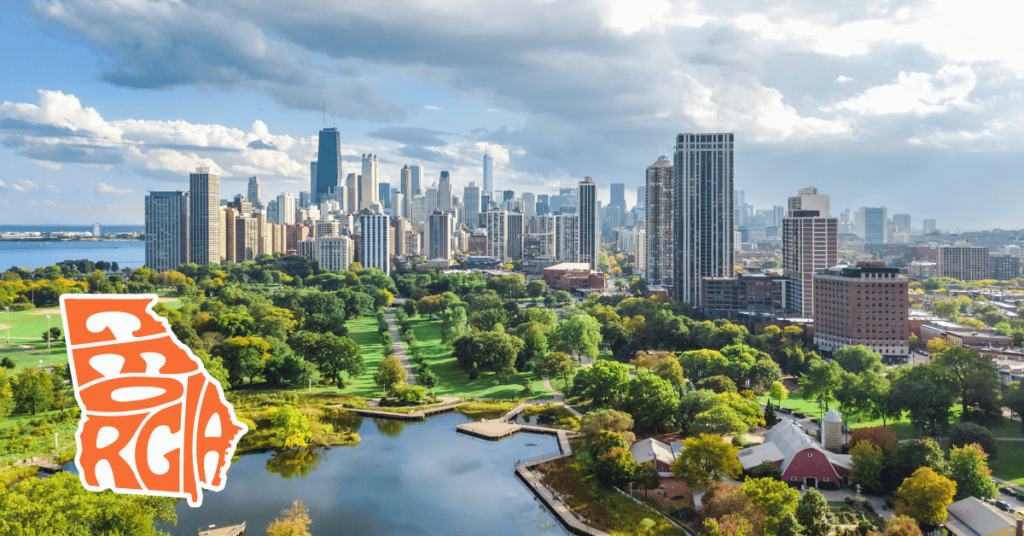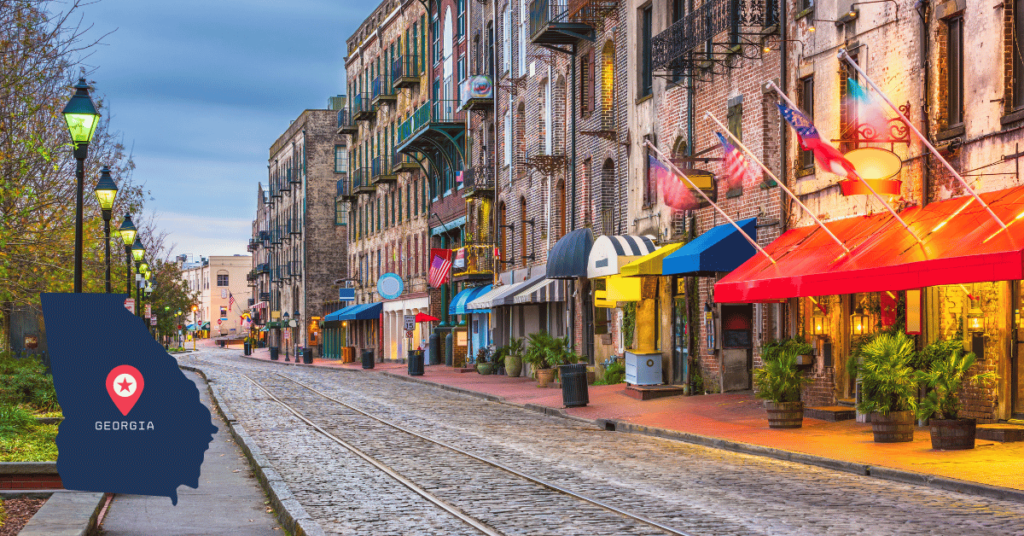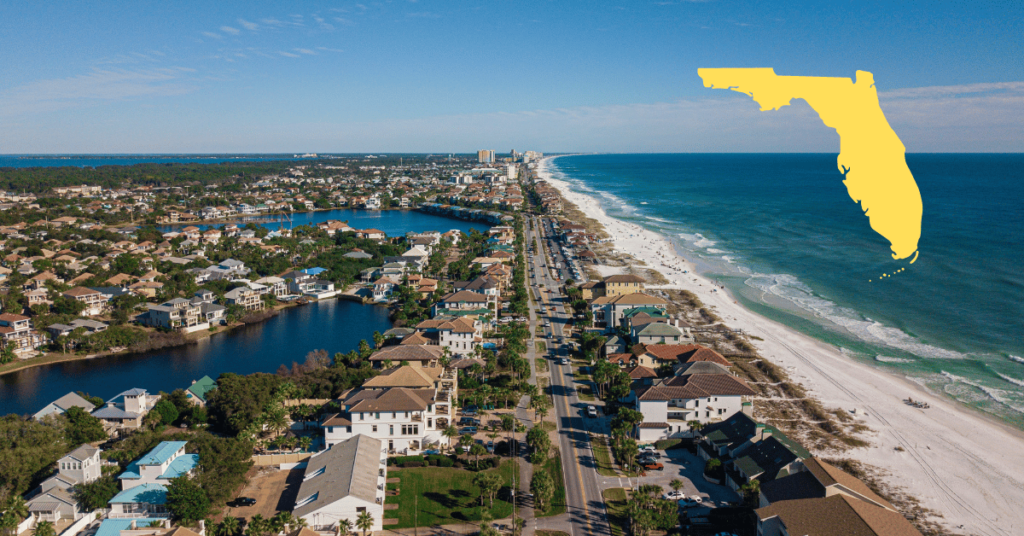Georgia is increasingly becoming a popular destination for retirees, especially non-traditional retirees who might not have access to a 401(k) or other conventional retirement plans. With its affordable cost of living, tax benefits, and variety of lifestyle options, Georgia offers an appealing environment for those looking for a more flexible retirement.
This guide explores what makes Georgia a good choice and provides practical tips on how to retire in the state.
Why Georgia is a Great Choice for Non-Traditional Retirees

Affordable Cost of Living
One of the primary reasons Georgia is attractive to retirees is its relatively low cost of living. Housing, groceries, healthcare, and utilities tend to be more affordable in Georgia compared to many other states, making it easier for retirees to stretch their savings.
Diverse Climate and Geography
Georgia offers a diverse landscape that includes coastal areas, mountains, and metropolitan regions. Whether you’re seeking a quiet, scenic retreat or a bustling city life, Georgia has something for every type of retiree.
Tax Benefits for Retirees
Georgia provides several tax benefits for retirees. Social Security income is exempt from state taxes, and for those over 65, the state offers significant retirement income exclusions. This means that a large portion of your retirement income may not be taxed, making Georgia a financially advantageous place to retire.
Best Cities and Regions for Non-Traditional Retirees

Savannah
Savannah offers a mix of rich history, stunning architecture, and a warm climate. Its walkable downtown, beautiful parks, and coastal location make it an appealing place for retirees who want access to both cultural amenities and natural beauty.
Atlanta
As the state’s capital and largest city, Atlanta is a hub of activity, offering world-class healthcare, dining, and entertainment. Non-traditional retirees who prefer urban living and continued part-time work will find plenty of opportunities here.
Athens
Home to the University of Georgia, Athens offers a vibrant cultural scene, a mild climate, and a lower cost of living than larger cities. It’s ideal for retirees who want a small-town feel with access to university-related activities like lectures, concerts, and sporting events.
Blue Ridge Mountains
For retirees who want to enjoy a more peaceful and nature-focused lifestyle, the Blue Ridge Mountains in northern Georgia provide a scenic, outdoor-oriented environment with hiking, fishing, and breathtaking views.
Columbus
Located on the Alabama border, Columbus is a military town with a rich history and a low cost of living. Its riverfront downtown, cultural offerings, and access to outdoor recreation make it a popular choice for retirees seeking affordability without sacrificing amenities.
Key Considerations for Retiring in Georgia
Healthcare Access
Georgia is home to several top-tier medical facilities, including Emory Healthcare in Atlanta. Access to high-quality healthcare is essential for retirees, and Georgia offers plenty of options for both routine care and specialized treatments.
Housing Options
From affordable condos in downtown areas to rural retreats in the mountains, Georgia offers a range of housing options for non-traditional retirees. Those looking to downsize or transition to a simpler lifestyle can find affordable homes that suit their needs and budget.
Tiny Homes and Modular Housing
For non-traditional retirees interested in minimalist living, Georgia offers communities that cater to tiny homes and modular housing. These options provide a cost-effective and sustainable way to enjoy retirement without the burden of maintaining a large property.
Transportation
Public transportation is available in larger cities like Atlanta, but many areas in Georgia are more car-dependent. Retirees who plan to live in rural or suburban areas should consider their transportation needs when choosing where to settle.
Job Opportunities for Part-Time Work
For retirees who aren’t ready to fully retire, Georgia offers opportunities for part-time work in fields like education, healthcare, and hospitality. Atlanta, in particular, has a strong job market, making it an excellent option for retirees looking to supplement their income.
Recreational Activities for Retirees
Outdoor Activities
Georgia’s natural beauty offers endless opportunities for outdoor recreation. From hiking in the Appalachian Trail to fishing in Lake Lanier, retirees can enjoy an active, nature-filled retirement.
Cultural and Historical Attractions
With its rich history, Georgia is home to several cultural attractions, including historic Savannah, Civil War battlefields, and numerous museums. Retirees can enjoy exploring the state’s history while also engaging in community events and local festivals.
Sports and Fitness
Georgia offers plenty of opportunities to stay fit and active, from golf courses and tennis clubs to fitness centers and walking trails. Many retirement communities in Georgia have built-in recreational amenities that encourage a healthy lifestyle.
Financial Planning for Retiring in Georgia
Cost of Living
While Georgia is relatively affordable, the cost of living can vary significantly depending on the region. For example, living in downtown Atlanta may be more expensive than rural areas like the Blue Ridge Mountains. Retirees should plan their budgets according to the location and type of lifestyle they want to pursue.
Property Taxes
Georgia’s property taxes are considered moderate compared to other states. Additionally, seniors may qualify for various property tax exemptions depending on the county. These exemptions can help reduce the financial burden of owning a home in retirement.
Income Tax and Retirement Income Exclusion
Georgia offers one of the most retiree-friendly tax systems in the U.S. Social Security income is entirely exempt from state taxes, and individuals over 65 can exclude up to $65,000 of their retirement income per person, or $130,000 per couple. This includes income from pensions, IRAs, and other retirement savings.
Downsides to Consider
Climate
While Georgia offers mild winters, the state’s summers can be hot and humid, particularly in the southern regions. Some retirees may find the summer heat to be a challenge, especially those with health concerns that are exacerbated by high temperatures.
Natural Disasters
Georgia is susceptible to natural disasters such as hurricanes in the coastal regions and tornadoes in the northern parts. Retirees should factor in the potential need for insurance and disaster preparedness when choosing a location within the state.
Conclusion
Georgia presents an ideal retirement destination for non-traditional retirees seeking affordability, a warm climate, and access to various lifestyle options. Whether you’re interested in living in a vibrant city, a scenic rural area, or a close-knit small town, Georgia offers a range of possibilities. With tax advantages, a lower cost of living, and diverse recreational activities, Georgia can be the perfect place to enjoy a non-traditional and fulfilling retirement.
If you have any further questions feel free to comment down below or contact retiresmart for any help!
FAQs
What are the tax benefits of retiring in Georgia?
Georgia exempts Social Security income from state taxes and offers significant retirement income exclusions for those over 65. This can result in considerable tax savings for retirees.
Is Georgia a good state for affordable retirement living?
Yes, Georgia has a lower cost of living compared to many other states, especially when it comes to housing, healthcare, and day-to-day expenses. This makes it a great choice for retirees on a budget.
What are the best cities for non-traditional retirees in Georgia?
Savannah, Atlanta, Athens, and Columbus are popular choices for retirees. Each offers unique benefits, from cultural amenities to outdoor activities, depending on your lifestyle preferences.
How does Georgia’s climate impact retirement?
Georgia’s climate features mild winters but hot, humid summers. While this is attractive to many retirees, those sensitive to heat may need to consider living in areas with milder temperatures or better air conditioning.




